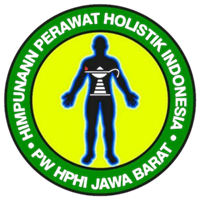Design of an Information System for Testing the Blood Characteristics on Increasing the Impact of Vibration using a Prototype “Blood Shaker Machine”
DOI:
https://doi.org/10.56359/gj.v3i2.153Keywords:
blood, information system, technologyAbstract
Objective: The general purpose of this research is to design an information system based on the application of blood characteristics testing on platelets to increase the impact of vibration by using a "Blood Shaker Machine" examined through a Haematology Analyzer (HA) and Peripheral Blood Smear (SADT) at any changes in the increase in vibration.
Method: The method used in this study is to design an application-based system on the "Blood Shaker Machine" and test the increase in vibration on changes in blood quality both in terms of the number and morphology of the platelets.
Result: Significant changes in the morphology of erythrocytes and platelets in the 10 Hz vibration group for 15 minutes also indicated a change in the quality of blood cells, both erythrocytes and platelets.
Conclusion: There is a significant difference in erythrocyte morphology changes between before and after being vibrated at 10 Hz with a p value of 0.014 and There is a significant difference in platelet morphology between before and after being vibrated at 10 Hz with a p value of 0.000.
Downloads
References
American Association of Blood Banks. “About Blood and Celluler Therapics”, 2008.
Arikunto, Suharsimi. 2010. Prosedur Penelitian Suatu pendekatan Praktek. Jakarta: Rineka Cipta
Astuti, Rini, Julia Setyati, Gunarto Dharmawan, Anna Kartika Yuli Astuti, Dewi Meika Mulyaningsih, Ag Soemantri. 2014. Setiap Tetes Darah Anda Sangat Berharga Selamatkan Satu Nyawa Sekarang. Semarang: Pelita Insani
Direktorat Bina Pelayanan Medik Dasar. 2008.Pedoman Pengelolaan Bank Darah Rumah Sakit. Jakarta: Departemen Kesehatan RI
Fitryadi, Khairil. 2016. Pengenalan Jenis Golongan Darah Menggunakan Jaringan Syaraf Tiruan Perceptron. Jurnal Masyarakat Informatika 7(1): 1-2
Ghodake VK & Kulkarni GR. 2015. Effect of Low Frequency Mechanical Vibrations on Human Blood (in vitro). International Journal of Chemical and Physical Sciences. Vol 4.
Homkes, Darlene M, et al. 2012. Overview of the Routine Blood Bank Laboratory. Modern Blood Banking & Transfusion Practices.6(11): 260-263.
Jamil, Nur Aisyah. 2007. Teknik Sampling. Yogyakarta: Elearnin Pendidikan Klinik Stase Ilmu Kesehatan Masyarakat
KEMENKES RI. 2017. Indonesia Butuh Darah 5,1 juta Kantong Pertahunhttp:// www.depkes.go.id/article/view/17071100002/indonesia-butuh-darah-5-1-juta-kantong- pertahun.html . Diakses 3 Desember 2018
Mentari D., Pebrina R., Nurpratami D. 2019. Storage Time Effect on pH, Glucose Level, Lactate Dehydrogenase (LDH), Calcium, and Mean Platelet Volume (MPV) Changes as A Quality Indicator of Thrombocyte Concentrate. Biomedika. ISSN 2085-8345Nasution, Rozaini. 2003. Teknik Sampling. Medan: USU Digital Library
Mitchell S.B and Peel Sandra. 2009. Histology. An Illustrated Colour Text. Churcil Living Stone.
Park M, Hur M, Yi A, Kim H, Lee HK, Jeon EY, et al. 2019. Utility of temperature-sensitive indicators for temperature monitoring of red-blood-cell units. Vox Sanguinis International Society of Blood Transfusion. Vol 114.
PERMENKES RI No.83. 2014. Standar Pelayanan Transfusi Darah.
PERMENKES RI No.91. 2015. Standar Pelayanan Transfusi Darah.
PERMENKES RI No.82. 2015. Standar Pelayanan Transfusi Darah.
Pratidina, Eki & Pupu Puspita. 2001. Tranfusi Darah. Bhakti Kencana Medika. 1(3): 89-95
Purwanto. 2008. Metodologi Penelitian Kuantitatif. Yogyakarta: Pustaka Pelajar
Rizani, Khairir, Cahya Tri Purnami, Dharminto. 2015. Pengembangan Sistem Pendukung Keputusan Persediaan Darah di Unit Transfusi Darah Cabang PMI Kabupaten Banjar Kalimantan Selatan untuk Mendukung Perencanaan Persediaan Darah. Vol.03 No.02, Agustus.
Roback, John D, et al: Technical manual, 16 ed.American Association of Blood Banks, Bethesda, MD, 2008
Sekaran, U. 2006. Metode Penelitian Untuk Bisnis 1. Jakarta: Salemba Empat.
Soedarmono. 2011. Challenges Encountered in Obtaining High Quality Test for Donor Screening. Accessed from : www.alomedika.com (12 Desember 2018)
Standards for Blood Banks and Transfusion Services, 27th ed. American Association of Blood Banks, Bethesda, MD, 2011
Sudarmanto B, Tamam M, Soemantri Ag. Transfusi Darah dan Transplantasi. Dalam: Nency, Yenny Movieta, Dana Sumanti. 2014. Latar Belakang Penyakit pada Penggunaan Transfusi Komponen Darah pada Anak. Vol.13 No.3, Oktober. Semarang: Universitas Diponegoro
Sugiarto. 2001. Teknik Sampling. Jakarta : PT. Gramedia Pustaka Utama
Sugiyono. 2013. Metode Penelitiaan Pendidikan Pendekatan Kuantitatif, Kualitatif, dan R &D. Bandung: Alfabeta.
Suhendra. 2016. Defisit Stok Darah Yang Tak Kunjung Terpecahkan https://tirto.id/defisit-stok-darah-yang-tak-kunjung-terpecahkan-bn3V. Accessed from 3 Desember 2018
United States Department of Health and Human Service: 2009 National Blood Collection and Utilizations Survey Report, 2011. Available at www.hhs.gov/bloodsafety
Utomo, K. B. (2010). Perancangan Sistem Informasi Bank Darah Hidup untuk Mempercepat Penyediaan Calon Penyumbang Darah dengan Ketepatan yang Tinggi ( Studi di PMI Kota Samarinda ).Jurnal Informatika Mulawarman,5 (2)
Wahidiyat, Pustika Amalia. 2016. Transfusi Rasional pada Anak.Sari Pediatri 18(4):325-31
Wulandari, Sari. 2017. Peran Bank Darah Rumah Sakit. Di akses dari : https://kanal pengetahuan.fk.ugm.ac.id/ (12 Desember 2018)
Downloads
Published
How to Cite
Issue
Section
License
Copyright (c) 2022 Genius Journal

This work is licensed under a Creative Commons Attribution 4.0 International License.















